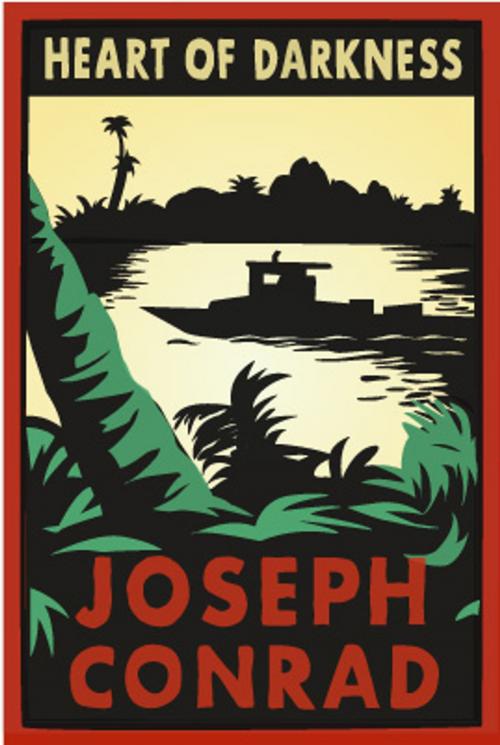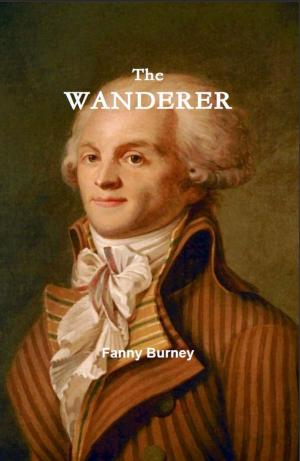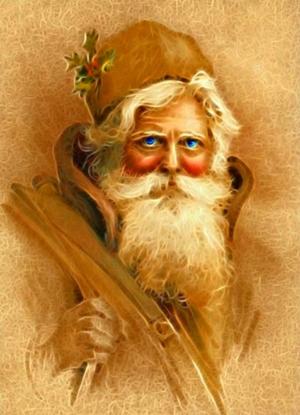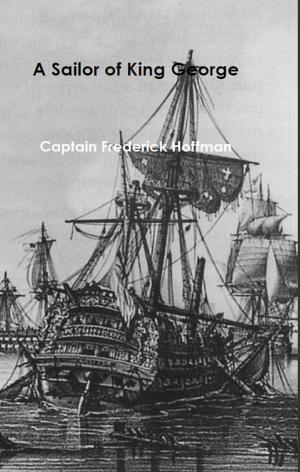| Author: | Joseph Conrad | ISBN: | 1230000037584 |
| Publisher: | AP Publishing House | Publication: | December 10, 2012 |
| Imprint: | Language: | English |
| Author: | Joseph Conrad |
| ISBN: | 1230000037584 |
| Publisher: | AP Publishing House |
| Publication: | December 10, 2012 |
| Imprint: | |
| Language: | English |
The story opens with an unnamed narrator on board a sailing yacht anchored in the Thames Estuary downstream from London and near Gravesend. He is with four friends, and dusk is falling as they wait for some hours for the turning of the tide. The narrator briefly describes the others, all of whom seem to be middle-aged men. One is called Marlow – the only one who "still followed the sea." Marlow makes a comment about London having been "one of the dark places on earth", and then begins a story of how he once took a job as captain of a river steamboat in Africa.
Marlow begins by ruminating on how Britain's obscure image among Ancient Roman officials must have been similar to Africa's image among 19th-century European officials. He describes how his "dear aunt" used many of her contacts to secure the job for him, calling him an "emissary of light."
When he arrives in Africa at the job, the other white men he encounters, the company agents, he dislikes as they strike him as shallow and untrustworthy – one is like "papier-mache". The company's main business seems to be buying ivory from the natives with beads, cloth and bits of brass. They speak often of one of the company's agents named Kurtz, stationed further up-river, who has quite a reputation in many (and somewhat mysterious) ways. Kurtz seems to be a rogue ivory collector, "essentially a great musician", journalist, skilled painter and "universal genius".
Marlow arrives up river at the Central Trading Station run by a manager who is an unwholesome conspiratorial character. He finds that his steamship has been sunk and suspects the manager of causing the "accident," and spends three months repairing it, including a frustrating wait for spare parts. His first assignment is a voyage up-river to Kurtz's station to collect ivory and Kurtz himself. There is a rumour regarding Kurtz being ill; this makes the delays in repairing the ship all the more costly. During the delay, Marlow overhears the manager talking about his fearful dislike of Kurtz, who appears to be a threat to the manager's powerful position, and how he wishes to execute a particular one of Kurtz's minions. Eventually Marlow, the manager and three other white agents set out with a crew of blacks from a cannibal tribe on a long and difficult voyage up the river.
As they near Kurtz's station they find an unexpected hut by the river with stacked firewood together with a note saying that the wood is for them but that they should approach cautiously. Shortly after the steamer has taken on the firewood it is surrounded by a dense fog. When the fog clears, the ship is attacked by an unseen band of natives, who shoot arrows from the safety of the forest, killing one of the crew. When they later reach Kurtz's station, which is surrounded by a collection of natives' severed head on poles, they are first met by a guileless Russian traveler, sometimes referred to as the harlequin because of his motley-like clothing. The Russian assures them that everything is fine and informs them that he is the one who had lived in the downstream hut and who had left the firewood. The Russian, a lone and aimless trader in the wilderness, came across Kurtz's station unexpectedly and has become a "disciple" of Kurtz, who seems to have the power to dominate anyone he meets. Marlow and his companions find that Kurtz has persuaded the natives to treat him as a god, and has led brutal raids in the surrounding territory in search of ivory. Marlow also recounts the brief appearance at the station of an awe-inspiring and enigmatic African woman, who may be Kurtz's mistress. The Russian, learning through Marlow of the manager's prior talk of punishing him, quietly flees the station, though not before admitting that it was Kurtz, refusing to be taken away from his god-like place in the wilderness, who ordered Marlow's boat to be attacked.
Due to Kurtz's ailing condition, however, Marlow and his crew take him aboard their ship themselves and depart. Kurtz is lodged in Marlow's pilot-house and Marlow begins to see that Kurtz is every bit as grandiose as previously described, especially with regards to the enthralling tone of his speech. However, Marlow finds himself disappointed with Kurtz's childish schemes for fame and fortune. During this time, Kurtz gives Marlow a collection of papers and a photograph for safekeeping, as both had witnessed the Manager going through Kurtz's belongings. The photograph is of a beautiful young woman whom Marlow correctly assumes is Kurtz's fiancée, or as Marlow calls her, "his Intended."
One night Marlow happens upon Kurtz, obviously near death. As Marlow comes closer with a candle, Kurtz seems to experience a "supreme moment of complete knowledge" and speaks his last words: "The horror! The horror!" Marlow believes this to be Kurtz's reflection on the events of his life. Marlow does not tell the others immediately of Kurtz's death; the news is instead presented to the whole crew scornfully by the manager's child-servant who has peered inquisitively into the room with Kurtz's body.
Marlow later returns to Europe and is confronted by many people seeking things and ideas of Kurtz. Marlow visits Kurtz's fiancée about a year later; she is still in mourning and strongly maintains naïve notions of his virtue. When she asks him about Kurtz's death and his final words, Marlow is unable to tell her the truth, instead telling her that his last words were "your name," and not "the horror! the horror!"
The story concludes back on the boat on the Thames, with a description of how the river seemed to lead into the heart of an immense darkness.
The story opens with an unnamed narrator on board a sailing yacht anchored in the Thames Estuary downstream from London and near Gravesend. He is with four friends, and dusk is falling as they wait for some hours for the turning of the tide. The narrator briefly describes the others, all of whom seem to be middle-aged men. One is called Marlow – the only one who "still followed the sea." Marlow makes a comment about London having been "one of the dark places on earth", and then begins a story of how he once took a job as captain of a river steamboat in Africa.
Marlow begins by ruminating on how Britain's obscure image among Ancient Roman officials must have been similar to Africa's image among 19th-century European officials. He describes how his "dear aunt" used many of her contacts to secure the job for him, calling him an "emissary of light."
When he arrives in Africa at the job, the other white men he encounters, the company agents, he dislikes as they strike him as shallow and untrustworthy – one is like "papier-mache". The company's main business seems to be buying ivory from the natives with beads, cloth and bits of brass. They speak often of one of the company's agents named Kurtz, stationed further up-river, who has quite a reputation in many (and somewhat mysterious) ways. Kurtz seems to be a rogue ivory collector, "essentially a great musician", journalist, skilled painter and "universal genius".
Marlow arrives up river at the Central Trading Station run by a manager who is an unwholesome conspiratorial character. He finds that his steamship has been sunk and suspects the manager of causing the "accident," and spends three months repairing it, including a frustrating wait for spare parts. His first assignment is a voyage up-river to Kurtz's station to collect ivory and Kurtz himself. There is a rumour regarding Kurtz being ill; this makes the delays in repairing the ship all the more costly. During the delay, Marlow overhears the manager talking about his fearful dislike of Kurtz, who appears to be a threat to the manager's powerful position, and how he wishes to execute a particular one of Kurtz's minions. Eventually Marlow, the manager and three other white agents set out with a crew of blacks from a cannibal tribe on a long and difficult voyage up the river.
As they near Kurtz's station they find an unexpected hut by the river with stacked firewood together with a note saying that the wood is for them but that they should approach cautiously. Shortly after the steamer has taken on the firewood it is surrounded by a dense fog. When the fog clears, the ship is attacked by an unseen band of natives, who shoot arrows from the safety of the forest, killing one of the crew. When they later reach Kurtz's station, which is surrounded by a collection of natives' severed head on poles, they are first met by a guileless Russian traveler, sometimes referred to as the harlequin because of his motley-like clothing. The Russian assures them that everything is fine and informs them that he is the one who had lived in the downstream hut and who had left the firewood. The Russian, a lone and aimless trader in the wilderness, came across Kurtz's station unexpectedly and has become a "disciple" of Kurtz, who seems to have the power to dominate anyone he meets. Marlow and his companions find that Kurtz has persuaded the natives to treat him as a god, and has led brutal raids in the surrounding territory in search of ivory. Marlow also recounts the brief appearance at the station of an awe-inspiring and enigmatic African woman, who may be Kurtz's mistress. The Russian, learning through Marlow of the manager's prior talk of punishing him, quietly flees the station, though not before admitting that it was Kurtz, refusing to be taken away from his god-like place in the wilderness, who ordered Marlow's boat to be attacked.
Due to Kurtz's ailing condition, however, Marlow and his crew take him aboard their ship themselves and depart. Kurtz is lodged in Marlow's pilot-house and Marlow begins to see that Kurtz is every bit as grandiose as previously described, especially with regards to the enthralling tone of his speech. However, Marlow finds himself disappointed with Kurtz's childish schemes for fame and fortune. During this time, Kurtz gives Marlow a collection of papers and a photograph for safekeeping, as both had witnessed the Manager going through Kurtz's belongings. The photograph is of a beautiful young woman whom Marlow correctly assumes is Kurtz's fiancée, or as Marlow calls her, "his Intended."
One night Marlow happens upon Kurtz, obviously near death. As Marlow comes closer with a candle, Kurtz seems to experience a "supreme moment of complete knowledge" and speaks his last words: "The horror! The horror!" Marlow believes this to be Kurtz's reflection on the events of his life. Marlow does not tell the others immediately of Kurtz's death; the news is instead presented to the whole crew scornfully by the manager's child-servant who has peered inquisitively into the room with Kurtz's body.
Marlow later returns to Europe and is confronted by many people seeking things and ideas of Kurtz. Marlow visits Kurtz's fiancée about a year later; she is still in mourning and strongly maintains naïve notions of his virtue. When she asks him about Kurtz's death and his final words, Marlow is unable to tell her the truth, instead telling her that his last words were "your name," and not "the horror! the horror!"
The story concludes back on the boat on the Thames, with a description of how the river seemed to lead into the heart of an immense darkness.















